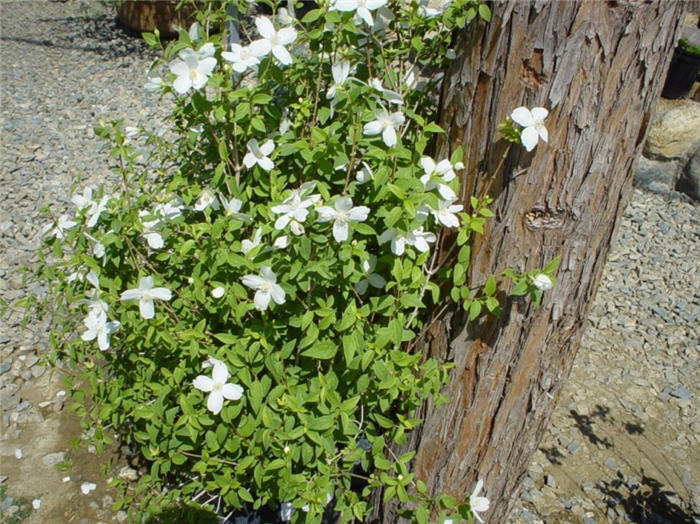| Botanical Name: Philadelphus x virginalis | |
| Common Name: Mockorange |

-
Anatomy
-
Culture
-
Design
Plant Type
Shrub
Height Range
6-12'
Flower Color
White
Flower Season
Spring
Leaf Color
Green, Dark Green
Bark Color
Brown
Fruit Color
n/a
Fruit Season
n/a
Sun
Full, Half
Water
Medium
Growth Rate
Moderate
Soil Type
Sandy, Clay, Loam, Rocky, Unparticular
Soil Condition
Average, Rich, Well-drained
Soil pH
Neutral
Adverse Factors
Attracts Bees
Design Styles
English Cottage, Formal, Ranch
Accenting Features
Fragrance, Showy Flowers
Seasonal Interest
Spring
Location Uses
Background, Shrub Border, Foundation, Walls / Fences
Special Uses
Cut Flowers, Hedge, Screen, Mass Planting
Attracts Wildlife
n/a
Information by: Stephanie Duer
Photographer:
Photographer:
-
Description
-
Notes
Mockorange is an old fashioned, deciduous garden shrub, growing about 6 to 8 feet tall and wide (depending on the cultivar). Its overall form is upright and mounding, with soft green, lobed leaves and sometimes have a pleasant yellow fall color. Grow this shrub for are the breath-takingly fragrant, white spring flowers (some are simple, single-petaled, some are double, and some nearly pom-pomish, again, depending on the variety). Plant it at the back of the shrub border behind something that provides a better summer show, or at the corner of the house, preferably near an open window. Many cultivars available.
Grow in full sun to light shade in well-drained soil. Prefers a loamy-sand to laomy-clay soil. Prune immediately after flowering , if necessary, so as not to lessen the flowering the following year (see guide). Though not really drought tolerate, once establish they do just fine with only a few waterings a month. Cuts well for vases.